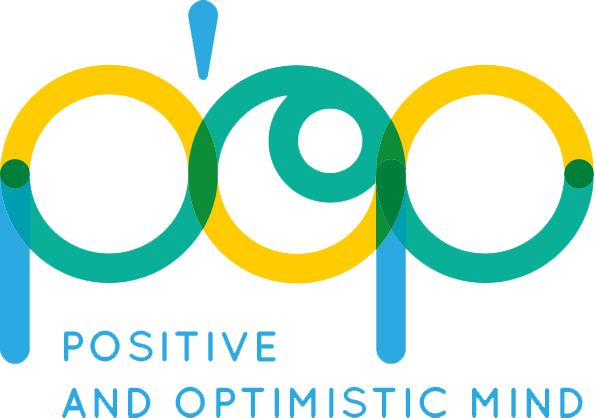The intergenerational issue has been at the heart of my research for over twenty years. Understanding the codes of each generation – their values, their drivers, their unconscious barriers, their relationship with the world – informs my surveys and my corporate interventions.
About ten years ago, I witnessed the emergence of Generation Y and its behaviors, which impacted companies right from job interviews. I observed the evolution of Generation X and how its interaction with Gen Y transformed it. Today, I am particularly interested in Generation Z, this future generation that prioritizes different objectives, with goals that are not always understood.
Our companies now rely on three generations: with baby boomers leaving the workforce, the X, Y, and Z generations remain, also known as the Wise, Now, and Next Generations. And despite their cohabitation, they still struggle to work together.
Why? Because they are characterized by two major disruptions:
- a historical disruption, which shaped their paradigms;
- a technological disruption, which transformed their relationship with the world and with business.
Three Generations, Three Different Impacts
- Generation X – the Wise Generation grew up with the conviction that the company was a place for career and development. However, this moral contract was broken in 2008 during the financial crisis, when companies ceased to embody security and trust.
- Generation Y – the Now Generation introduced other priorities: giving meaning to work, maintaining work-life balance, refusing to sacrifice personal life for career. It brought values of agility, freedom, and collaboration – which proved vital during the COVID crisis, with the rise of remote work and new forms of collaboration.
- Generation Z – the Next Generation enters a world fractured by climate and social crises. It is marked by
eco-anxiety , a truly new corporate ailment. Where burnout characterized previous generations, Gen Z oscillates between three reactions: fight (activist engagement), freeze (inability to act), and flight (withdrawal or denial).
I also observe, through my discussions with Gen Z representatives, such as Nikita Colas, an environmental activist, how much this generation refuses to separate career and ecological responsibility. For them, the company must be part of the solution, not the problem.
Each of these generations brings a unique vision: anchoring and resilience for Gen X, a quest for meaning and balance for Gen Y, lucidity and activism for Gen Z.
Beyond Labels: A Matter of Values and Consciousness
Reducing individuals to a mere generational affiliation would be a mistake. As early as 2016, our survey on Generation Y Turnover showed that barely 30% of them truly embodied “Y values”; another portion shared X values, and the rest fell into an intermediate zone. These proportions have continued to evolve and reveal a more nuanced reality than clichés suggest.
Intergenerational dynamics are not a matter of age. It is a matter of values, levels of consciousness, and – in 2025 more than ever – a desire for impact.
One can be 25 years old and seek the security of a Gen X, or be 60 and share the quest for freedom of a Gen Y.
As Emmanuelle Duez demonstrated with The Boson Project, “youth is not the future of business, it is already its present.” Recognizing this obvious truth means accepting that Gen Z is an immediate force for transformation, not a distant gamble.
Why is intergenerational collaboration vital?
Recent crises – financial, health, climate, geopolitical – remind us that answers will not come from a single generation. It is through intergenerational dialogue that sustainable solutions emerge:
- The lucidity of Gen Z compels us to move beyond “business as usual” and calls on companies to take reparative actions, to engage in the convergence of struggles for greater social and ecological justice.
- The quest for meaning by Gen Y has already transformed the company: flexibility, autonomy, remote work.
- The experience of Gen X brings resilience and grounding, having navigated multiple crises and demonstrating that it is possible to overcome them.
We are living in a Darwinian imperative. The companies that survive will not be those that pit their generations against each other, but those that foster dialogue among them. Not by adding their differences, but by multiplying their strengths.
Concrete Solutions for Reconciling Generations
Beyond this observation, it is urgent to propose concrete levers to transform generational cohabitation into genuine collaboration. Here are some avenues, validated by my field surveys, cross-referenced with data from the Deloitte Global Gen Z & Millennial Survey 2025 and the work of Isaac Getz on liberated and altruistic companies:
- Map Skills & Create Talent Convergences
Each generation brings an invisible capital (technical, relational, societal) that is often underutilized.
➡️ Action: Conduct talent mapping to identify emerging skills (ecology, digital, soft skills). By cross-referencing generations, hybrid teams capable of sustainable innovation are created.
- Implement Reverse Mentoring & Cross-Generational Dialogues
Gen Z wants to be heard. Their voice is valuable for updating managerial practices.
➡️ Action: Implement intergenerational pairings where younger individuals mentor more experienced ones on digital, ecological, or societal transformation.
- Replace Performance Reviews with Development Reviews
Control demotivates; development fosters loyalty.
➡️ Action: Transform annual reviews into meetings focused on aspirations, values, and impact. This addresses the expectation for meaning: nearly 90% of younger generations place meaning at the heart of their job satisfaction (Deloitte 2025).
- Strengthen Meaning, Engagement, and Value Alignment
Newer generations leave a company if they perceive its commitment as superficial. Isaac Getz demonstrated this: an “altruistic company” attracts because it genuinely embodies its values.
➡️ Action: Clarify the purpose, make commitments visible, involve all levels – leaders, managers, employees – in concrete impact projects.
- Flexibility & Mental Well-being
Less than 60% of Gen Z and millennials report good mental health, and anxiety is a constant (Deloitte 2025).
➡️ Action: Develop flexibility (remote work, adjusted hours), train managers in active listening and benevolence, recognize efforts beyond quantitative results.
Conclusion
The expectations of Generations Y and Z are not mere fleeting demands: they reflect profound disruptions in our societies. Companies that fail to heed them will not be able to adapt and therefore survive.
When conceived as a true strategic lever, intergenerational dynamics become not only a factor of cohesion, but also a force for resilience, innovation, and societal impact.
The company of tomorrow will be one that cultivates the convergence of values as much as the diversity of generations – a certain idea of liberty, fraternity, and democracy.
It’s not too late!
Béatrix Charlier, researcher and specialist in multiple intelligences and intergenerational collaboration

